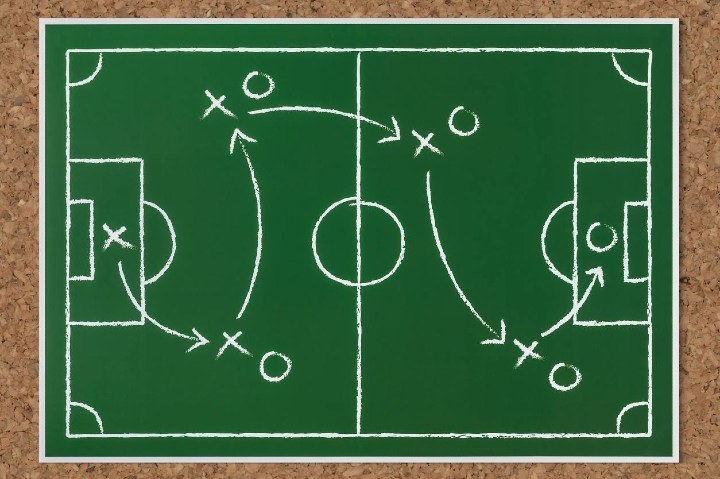“Football Coaching Strategies in Croatia: A Deep Dive into Development, Tactics, and Success
Related Articles Football Coaching Strategies in Croatia: A Deep Dive into Development, Tactics, and Success
Football Coaching Strategies in Croatia: A Deep Dive into Development, Tactics, and Success

Croatia, a nation of just over four million people, has consistently punched above its weight in the world of football. From the legendary exploits of the 1998 World Cup team to the more recent silver and bronze medal finishes in 2018 and 2022, Croatian football has become synonymous with tactical astuteness, technical brilliance, and unwavering determination. This success is not accidental; it is the result of a well-structured footballing ecosystem underpinned by effective coaching strategies. This article delves into the key coaching strategies employed in Croatia, examining the developmental approaches, tactical philosophies, and the overall footballing culture that contribute to the nation’s remarkable achievements.
I. The Foundation: Youth Development and Grassroots Coaching
The bedrock of Croatian football success lies in its robust youth development system. Recognizing that future success depends on nurturing talent from a young age, Croatian clubs invest heavily in their youth academies. Key elements of this developmental approach include:
- Early Specialization and Holistic Development: While early specialization is often debated, Croatian academies tend to identify promising talents early but emphasize a holistic approach. Technical skills are honed from a young age, but physical conditioning, tactical awareness, and psychological resilience are also given due importance. Coaches understand that developing well-rounded players is crucial for long-term success.
- Emphasis on Technical Proficiency: Croatian football has always been characterized by technically gifted players. Youth coaching emphasizes ball control, passing accuracy, dribbling skills, and close control in tight spaces. Drills and exercises are designed to improve players’ comfort and confidence with the ball, fostering creativity and improvisation.
- Small-Sided Games and Tactical Awareness: Small-sided games are a staple of Croatian youth training. These games, played on smaller pitches with fewer players, encourage quick decision-making, spatial awareness, and tactical understanding. Players learn to adapt to different situations, make intelligent runs, and work effectively as a team.
- Qualified and Dedicated Coaches: Croatian youth academies employ qualified and passionate coaches who understand the specific needs of young players. These coaches are not just instructors; they are mentors who guide and nurture players’ development, fostering a love for the game and instilling important values such as discipline, teamwork, and respect.
- Structured Curriculum and Age-Specific Training: Croatian academies follow a structured curriculum that outlines the skills and knowledge players should acquire at each age group. Training sessions are tailored to the specific developmental needs of each age group, ensuring that players are challenged appropriately and progress at a steady pace.
II. Tactical Philosophies and Coaching Styles
Croatian football is characterized by a pragmatic yet adaptable tactical approach. While there is no single "Croatian style," certain tactical principles and coaching styles are prevalent:
- Emphasis on Possession and Control: Croatian teams generally prioritize possession-based football, aiming to control the tempo of the game and dictate play. This emphasis on possession is rooted in the belief that having the ball gives the team greater control over the game and reduces the opponent’s opportunities to score.
- Tactical Flexibility and Adaptability: Croatian coaches are known for their tactical flexibility and ability to adapt their game plan to suit the opponent and the specific circumstances of the match. They are not afraid to change formations, adjust their approach, and make tactical substitutions to gain an advantage.
- Solid Defensive Organization: While Croatian teams are known for their attacking flair, they also prioritize defensive solidity. Coaches emphasize the importance of disciplined defending, compact formations, and effective pressing to prevent the opposition from creating scoring opportunities.
- Exploiting Wing Play and Wide Areas: Croatian teams often utilize wing play and wide areas to stretch the opposition’s defense and create crossing opportunities. Wingers are encouraged to take on defenders, deliver accurate crosses, and create space for midfielders to make runs into the box.
- Midfield Dominance and Creative Playmakers: Croatian football has a rich history of producing world-class midfielders. Coaches emphasize the importance of midfield dominance, encouraging players to control the tempo of the game, dictate play, and create scoring opportunities with their passing and vision.
- Pragmatic Approach to Game Management: Croatian coaches are known for their pragmatic approach to game management. They understand the importance of managing the clock, making timely substitutions, and adapting their tactics to see out a lead or chase a goal.

III. Key Coaching Figures and Their Influence
Several prominent coaching figures have shaped the landscape of Croatian football. Their influence can be seen in the tactical approaches, developmental philosophies, and overall footballing culture of the nation:
- Miroslav Blažević: "Ćiro," as he was affectionately known, led Croatia to its historic third-place finish at the 1998 World Cup. His charismatic personality and tactical acumen inspired a generation of Croatian footballers and coaches. He instilled a sense of belief and determination in his players, fostering a winning mentality.
- Otto Barić: A highly respected coach with extensive experience in Austria and Croatia, Barić emphasized tactical discipline and defensive organization. He instilled a solid foundation in the Croatian national team, laying the groundwork for future success.
- Slaven Bilić: Bilić led Croatia to the quarter-finals of Euro 2008, showcasing an attacking and entertaining style of play. He emphasized youth development and gave opportunities to young players, fostering a new generation of talent.
- Zlatko Dalić: Dalić masterminded Croatia’s incredible run to the World Cup final in 2018 and the third-place finish in 2022. His calm demeanor, tactical flexibility, and ability to unite the team were crucial to their success. He is known for his pragmatic approach and his ability to get the best out of his players.
IV. The Footballing Culture and Environment
The success of Croatian football is also attributed to its unique footballing culture and environment:
- Passion and Dedication: Football is deeply ingrained in Croatian culture. Players are passionate about the game and dedicated to their craft. This passion and dedication are evident in their work ethic, their commitment to training, and their unwavering determination on the pitch.
- Strong Club System: Croatia has a strong club system, with clubs like Dinamo Zagreb, Hajduk Split, and Rijeka consistently producing top talent. These clubs provide a platform for young players to develop and showcase their skills, attracting attention from scouts and agents.
- Supportive Fan Base: Croatian football fans are known for their passionate support of their national team and their clubs. This support creates a vibrant atmosphere at matches and motivates players to perform at their best.
- Competitive League: The Croatian First Football League (Prva HNL) is a competitive league that provides a challenging environment for players to develop. The league features a mix of experienced veterans and promising young talents, creating a dynamic and exciting competition.
V. Challenges and Future Directions
Despite its remarkable success, Croatian football faces several challenges:
- Financial Constraints: Croatian clubs often struggle to compete financially with their counterparts in wealthier European leagues. This can lead to the loss of talented players to foreign clubs, hindering the development of the domestic league.
- Infrastructure Development: Some Croatian football stadiums and training facilities are in need of modernization. Investing in infrastructure would improve the playing and training environment for players, further enhancing their development.
- Maintaining a Consistent Pipeline of Talent: While Croatia has consistently produced talented players, maintaining a consistent pipeline of talent is a constant challenge. Continued investment in youth development and coaching education is crucial to ensure the future success of Croatian football.
Looking ahead, Croatian football needs to continue to invest in its youth development system, improve its infrastructure, and maintain its competitive spirit. By embracing innovation, adapting to changing trends, and staying true to its core values, Croatian football can continue to punch above its weight and achieve even greater success on the world stage. The coaching strategies, combined with the nation’s passion for the game, will undoubtedly play a crucial role in shaping the future of Croatian football.

